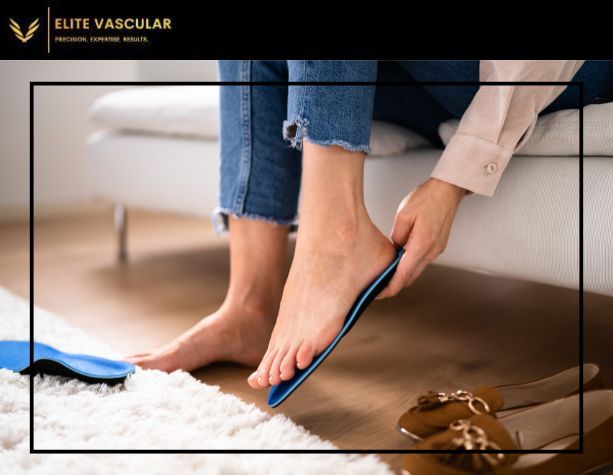- admin
- 1 Comment
Venous insufficiency is a condition in which the veins in the leg do not efficiently return blood to the heart. This condition often results in swelling, discomfort and fatigue. Selecting proper footwear can help manage these symptoms and enhance your general comfort. Here are some tips on finding the best shoes for venous insufficiency relief:
Choose Compression-Friendly Shoes
For this reason, it is important that you pick shoes that allow for compression socks. When selecting such shoes, consider those that have a wide front part as well as adjustable fasteners such as strings or straps which would be useful to accommodate any of these swellings or extra clothes because of wearing compression stockings.
Choose Comfortable Cushioned Footwear with Arch Support
Cushioned shoewear helps them to absorb shock and reduce lower legs’ pressure thereby reducing some discomforts associated with venous insufficiency. It is advisable for people having this problem to purchase footwears having cushioned inner soles, supportive midsoles and hard heel counters.
Avoid High Heeled And Flat Soled Shoes
On one hand, high heeled shoes may lead to venous insufficiency by impeding blood circulation and increasing tension in veins. On the other hand, completely flat shoes may lack the arch support needed for proper circulation. Choose a slightly raised heel (about 1-2 inches) that can facilitate better blood flow.
Look For Adjustable Shoes
Since at times venous insufficiency causes swelling all through the day you should get shoes with an adjustable feature like buckles or panels made of elastic material. These features modify the fitting hence if your feet enlarge there is still room left for comfort ability.
Use Materials That Breathe
Your feet will remain cool and dry if they are clad in breathable materials such as leather or mesh; this will prevent skin irritation amongst other things while maintaining their overall healthiness. This is particularly useful for preventing the accumulation of moisture in case you have on your compression socks.
Choose Lightweight Shoes
If you have venous insufficiency, do not use heavy shoes because they will only strain your legs resulting in further worsening of the condition. Choose light footwear that offer enough support minus increasing burden to the feet.
Seek Out Broad-Soled Footwear
Wide soles are preferred since they enhance one’s stability and reduces stress on the leg veins. A solid foundation is important should you experience swelling as it helps prevent irritation points.
Consider Orthotic-Friendly Designs
Your shoes need to be compatible with your custom orthotics or insoles if you wear them. Most models come with removable inner soles that can be swapped out for personalized support from your orthotics.
Comfort First Before Fashion
For individuals suffering from venous insufficiency, fashion plays second fiddle to comfort while selecting their shoes. Think of focusing on relief-providing and supportive shoes even if this means being out of touch with current trends in footwear styling.
Replace Worn Out Shoes Regularly
Worn out foot wears lose cushioning as well as support thus aggravating symptoms such as those for those suffering from venous insufficiency. Ensure that you regularly replace your pair especially upon noticing signs like flat insoles or worn-out soles.
Conclusion
Thus, suitable footwear can significantly help manage venous insufficiency enabling sufferers to cope better with their condition. Therefore, by making sure that there is enough space provided for these patients’ swollen feet and ankles while buying footwears; an individual can ease pain association with this illness at different times throughout the day. Also remember; “feet are important – take care!”

Fenni